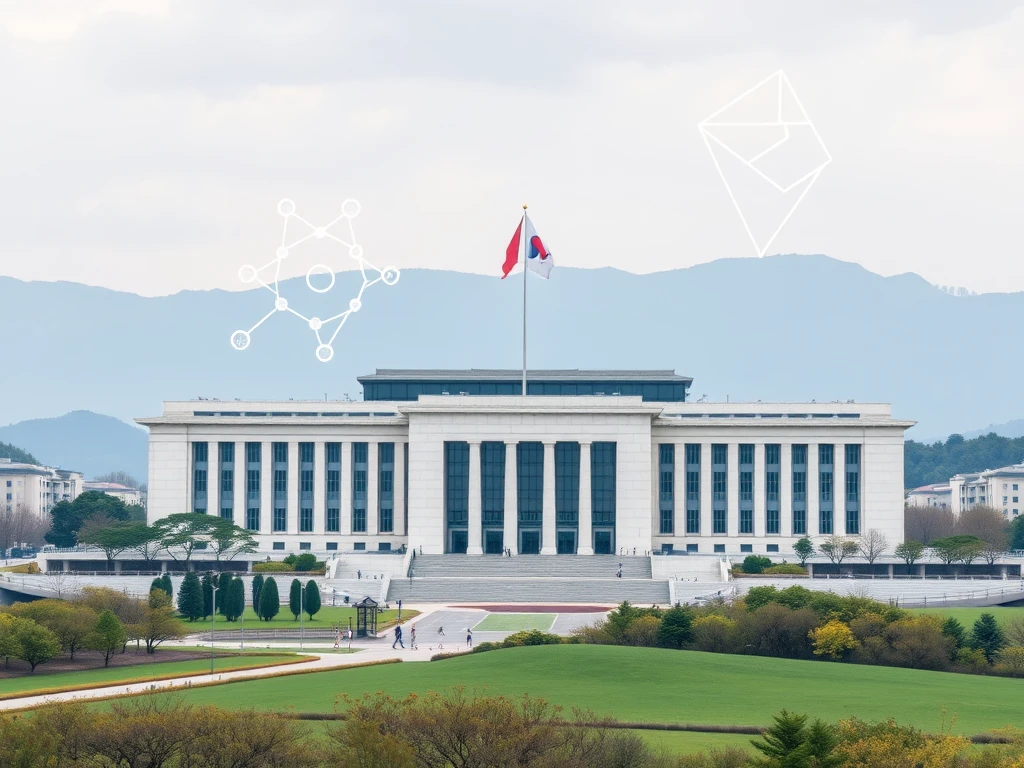South Korea’s Pivotal Move: Digital Asset Committee to Tackle Crypto Policy

The landscape of South Korea crypto is undergoing a significant shift. The country’s largest political party, the Democratic Party, has established a dedicated ‘Digital Asset Committee’. This move signals a serious intent to shape the future of the digital asset industry within South Korea.
South Korea’s New Digital Asset Committee Takes Shape
The Democratic Party in South Korea has officially launched its Digital Asset Committee. The primary goal? To focus on developing effective crypto policy and promoting the growth of the digital asset industry nationwide. The committee held its first meeting on May 13th at the National Assembly Members’ Hall in Seoul.
This new committee joins other existing bodies in South Korea aimed at overseeing the digital asset space, such as the Virtual Asset Committee launched by the Financial Services Commission (FSC) in late 2024 and a public-private task force introduced in 2022.
Who is Guiding South Korea’s Crypto Regulation Efforts?
The leadership of the Digital Asset Committee includes prominent South Korean officials and politicians. National Assembly chairman Min Byeong-deok serves as the committee’s chairman. Other key members include Yoon Yeo-joon, Maeng Seong-gyu, Kim Byeong-gi, and Kim Jeong-woo.
Significantly, the committee is also set to include executives from major local crypto exchanges. Reports indicate participation from platforms like Upbit, Bithumb, Coinbit, and Gopax. This inclusion of industry players suggests an effort to incorporate practical insights into future regulations.
Addressing Key Issues: Stablecoin Regulation and Banking Rules
During its inaugural meeting, the committee highlighted several pressing issues facing the industry. A major focus is resolving regulatory uncertainty that currently exists in the market. They also plan to tackle complex topics like stablecoin regulation, especially considering the global push for US-dollar stablecoins.
Committee chairman Min Byeong-deok specifically voiced concerns regarding South Korea’s current ‘one-exchange, one-bank’ rule. This rule restricts crypto exchanges to partnering with only one bank for real-name accounts, which Min suggested has clear limitations. The committee is reportedly working with regulators to address this issue.
Another point of discussion revolves around which regulatory body should oversee the stablecoin industry – the Bank of Korea or the FSC – and whether stablecoins should operate under a licensing or reporting system. This debate comes shortly after a Bank of Korea executive expressed concerns about the potential impact of South Korean won-backed stablecoins on monetary policy and financial stability, suggesting the central bank should have practical intervention in the approval stage.
The Potential Impact on South Korea’s Crypto Policy Landscape
The formation of the Digital Asset Committee by South Korea’s largest political party is a notable development for the country’s crypto sector. By bringing together politicians, officials, and industry executives, the committee aims to create a more predictable and growth-friendly environment for digital assets.
Their work on clarifying crypto regulation, particularly for stablecoins, and reforming banking rules could significantly impact how businesses and individuals interact with cryptocurrencies in South Korea. The outcomes of this committee’s efforts will be closely watched by the domestic and international crypto communities.
Conclusion
South Korea’s Democratic Party has taken a concrete step towards developing a clearer framework for digital assets by launching the Digital Asset Committee. With a focus on resolving regulatory ambiguity, addressing stablecoin regulation, and potentially reforming the ‘one-exchange, one-bank’ rule, this committee is poised to play a key role in shaping South Korea’s crypto policy moving forward. The involvement of both political leaders and industry participants suggests a collaborative approach to navigating the complexities of the digital asset space.








